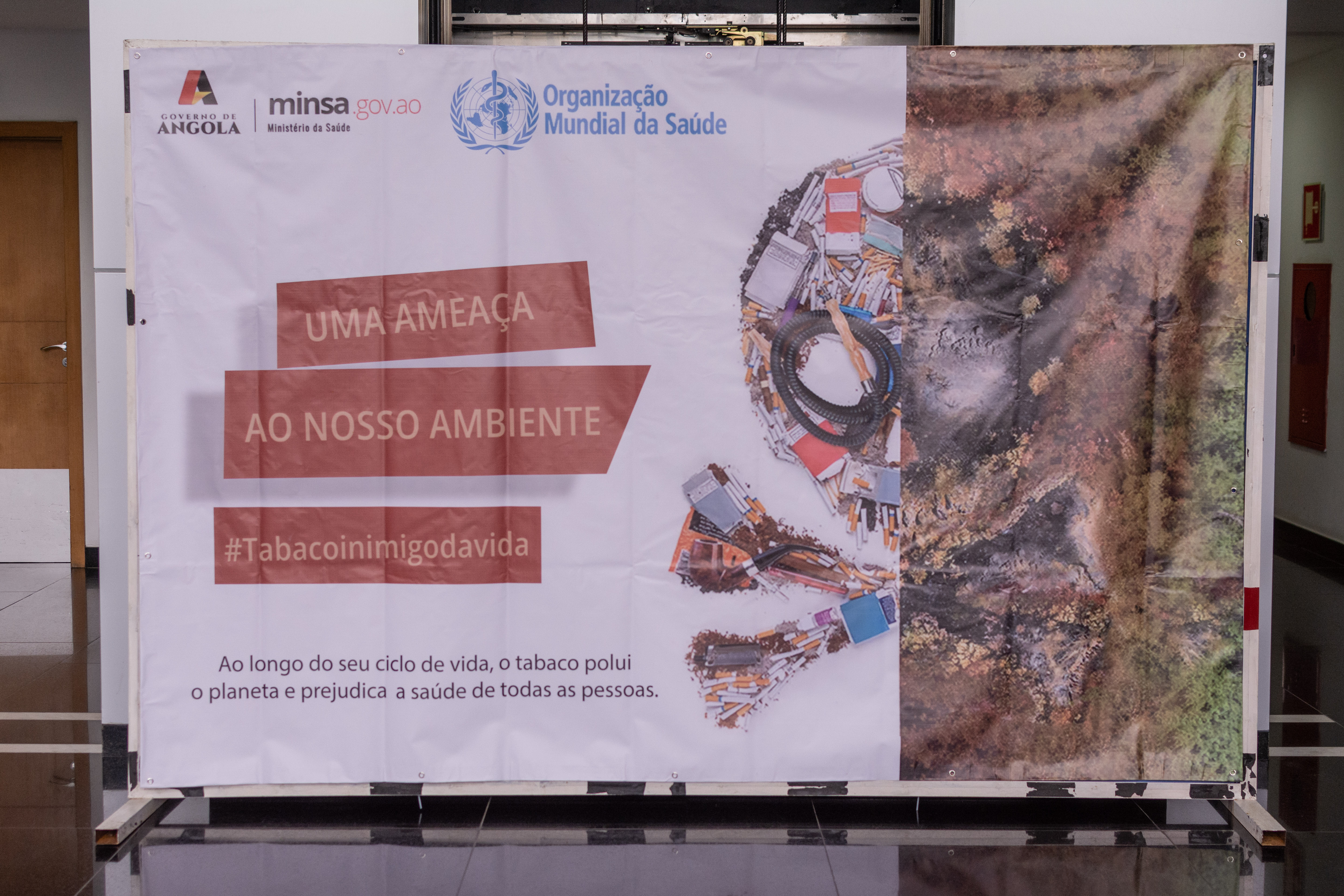Angola invests in the education of young people, to strengthen tobacco control and elimination
Luanda, May 31th 2022 – Every year, more than 8 million people die worldwide due to smoking, of which 7 million result from direct consumption of tobacco and 1.2 million due to exposure of non-smokers to secondhand smoke. To educate the younger population about the dangers of smoking, the National Anti-Drug Fighting Institute (INALUD) held today in Luanda, another edition of the Writing and Drawing contest “Limpid Dreams Without Tobacco”.
The initiative aligns with the celebrations of May 31st, World No Tobacco Day which aims to educate and raise awareness among children about the harmful dangers of smoking for individual and population health, to ensure the prevention and reduction of diseases associated with smoking tobacco consumption.
According to the Director of the National Anti-Drug Fighting Institute, Ana Graça, the Drawing and Writing contest is a fundamental initiative, held annually since 2015, to reinforce information, communication and education for children and adolescents about the dangers of smoking.
“The tobacco industry's products and business practices are destroying the environment and putting public health, our lives and the planet at risk. Therefore, all, together and united, each at their own level, we can and have a responsibility to promote smoke-free environments and protect health”.
To strengthen the fight against tobacco use, in 2003, the World Health Assembly adopted the Framework Convention on Tobacco Control, which, among the various measures, encourages member states to adopt and apply policies that promote the education of the populations, increase in taxes on tobacco, abolition of the promotion of smoking, guarantee of adequate treatment for tobacco dependence, as well as the active supervision of the Laws that prohibit smoking in public places.
In turn, the WHO Representative in Angola, Dr. Djamila Cabral made it known that the tobacco industry is polluting our planet, causing significant impacts on deforestation, air pollution, and water waste, with drastic consequences for the health of our families, in particular children.
“In addition to causing thousands of deaths due to direct and passive consumption of tobacco, the tobacco industry is exacerbating climate change and contributing to an increase in environment-related diseases. Therefore, we have a duty to eliminate smoking, save the planet to improve the health of our populations and save humanity.”
Studies carried out by the WHO indicate that every year, 600 million trees are cut down to make 6 trillion cigarettes, approximately 22 trillion liters of water are used to make cigarettes and 4.5 trillion cigarette butts pollute the environment. WHO calls on African governments to apply environmental taxes on tobacco across all value and supply chains, including production, processing, distribution, sales, consumption, and waste management, to accelerate tobacco control and elimination.
This year, World No Tobacco Day is celebrated under the motto, “Tobacco: Threat to our environment”, highlighting the environmental impact of the entire tobacco cycle, from cultivation, production and distribution to the toxic waste it generates.
About OMS:
The World Health Organization contributes to a better future for people around the world. Good health lays the foundation for vibrant and productive communities, stronger economies, safer nations and a better world. As the leading health authority within the United Nations system, our work touches the lives of people around the world, every day. In Africa, WHO serves 47 Member States and works with development partners to improve the health and well-being of all people living on our continent.
Learn more at www.afro.who.int and follow us on Twitter, Facebook and YouTube
***




